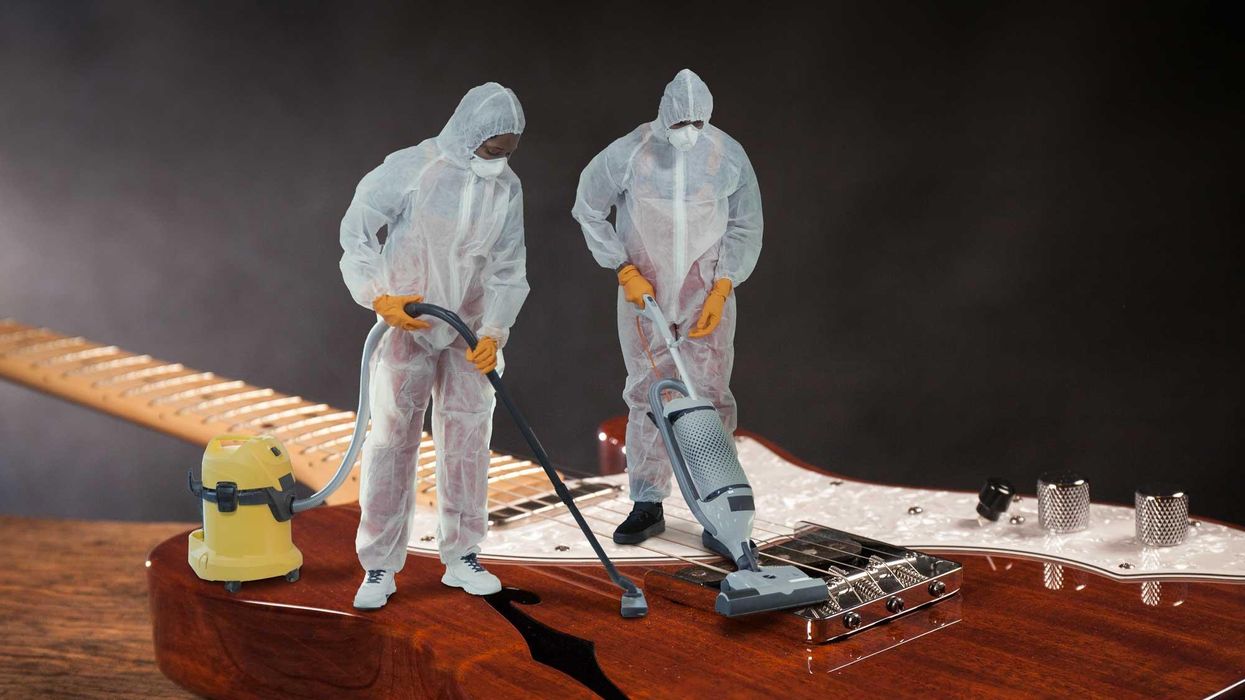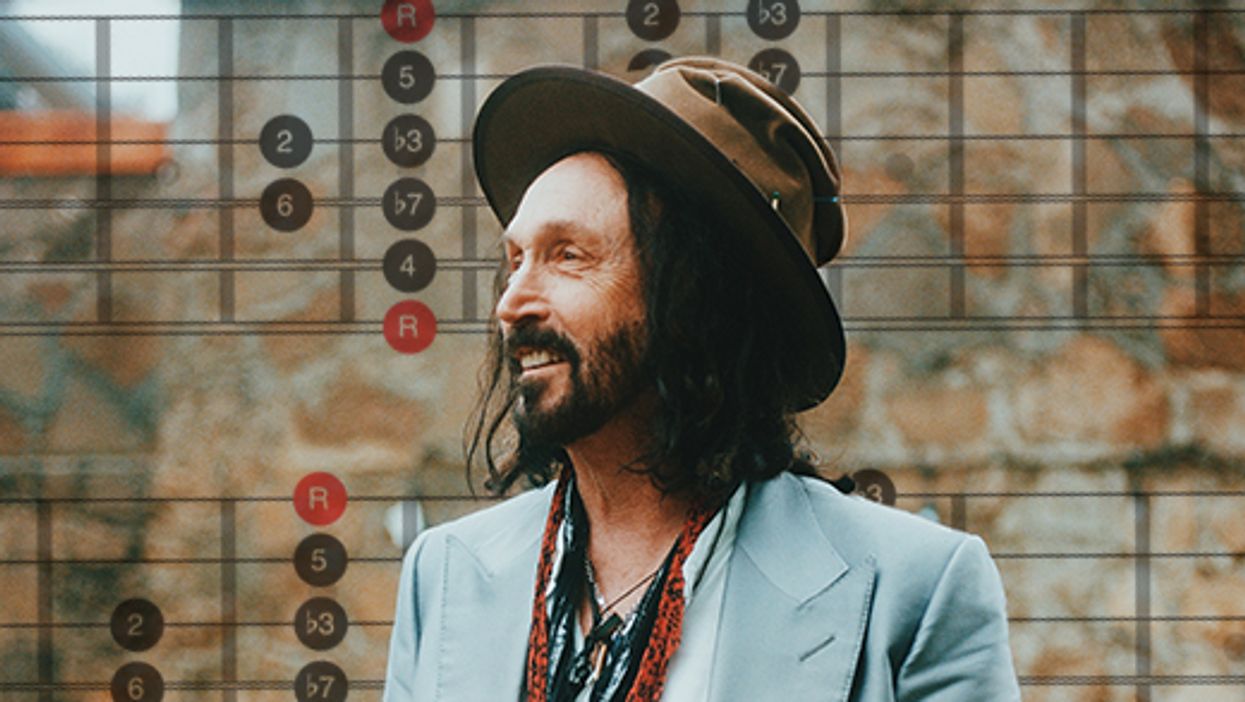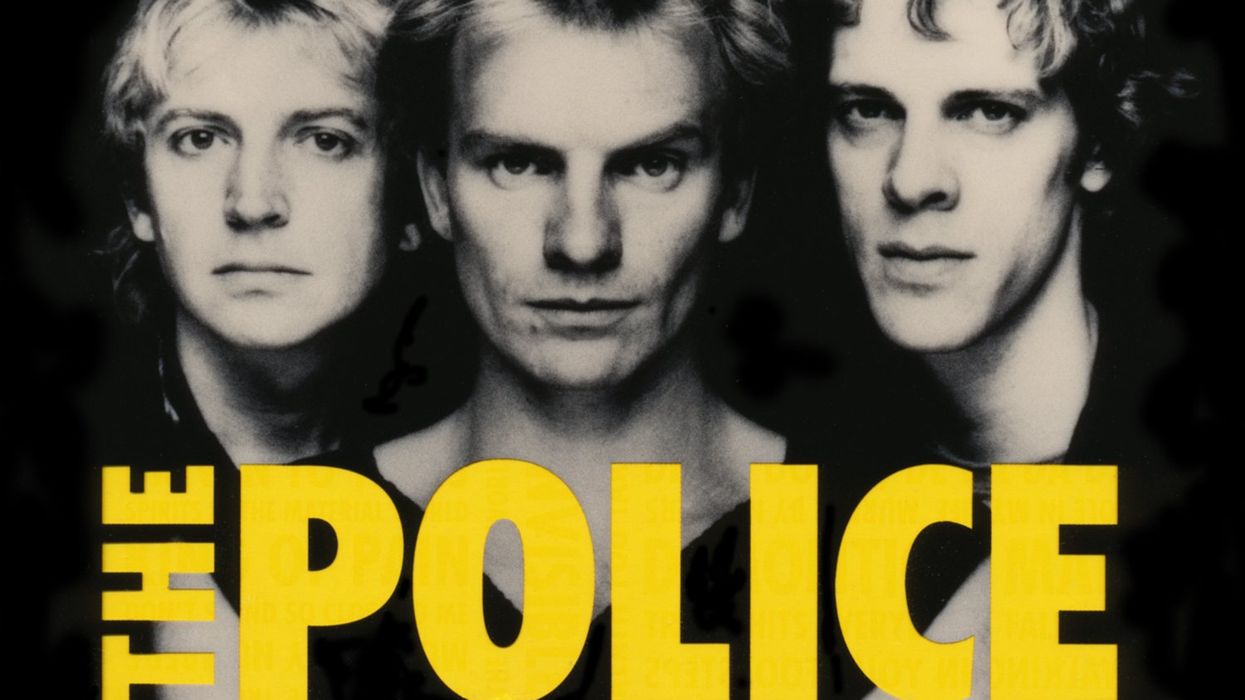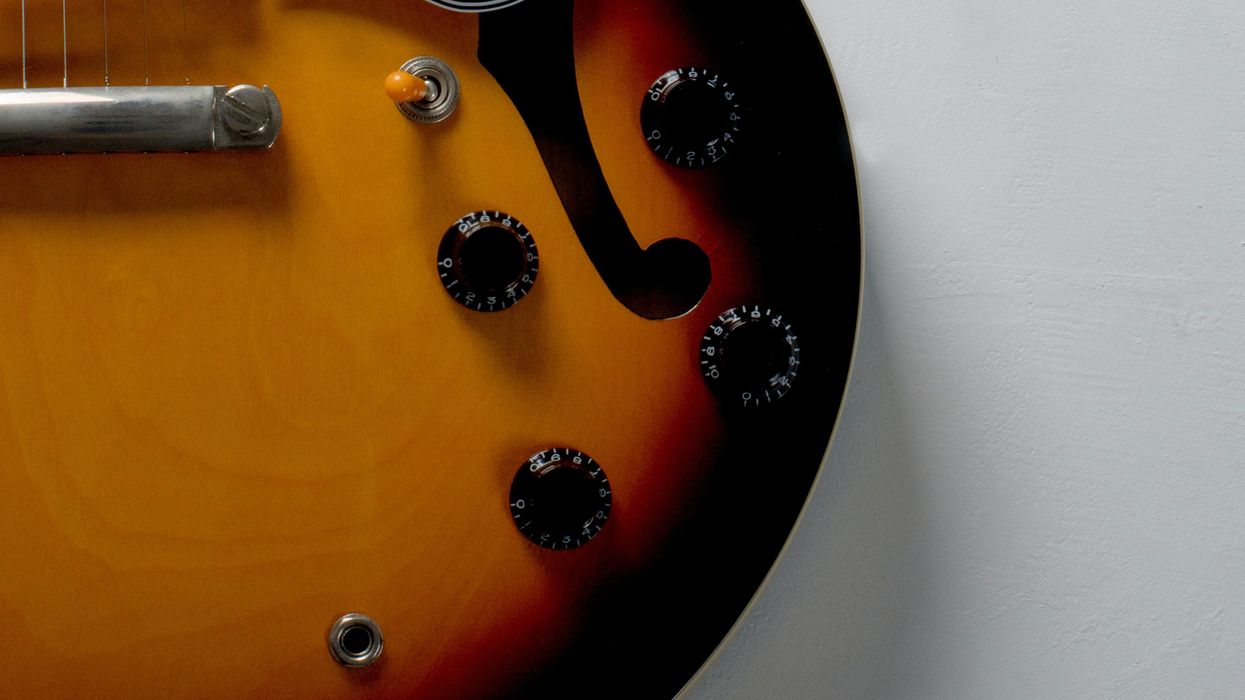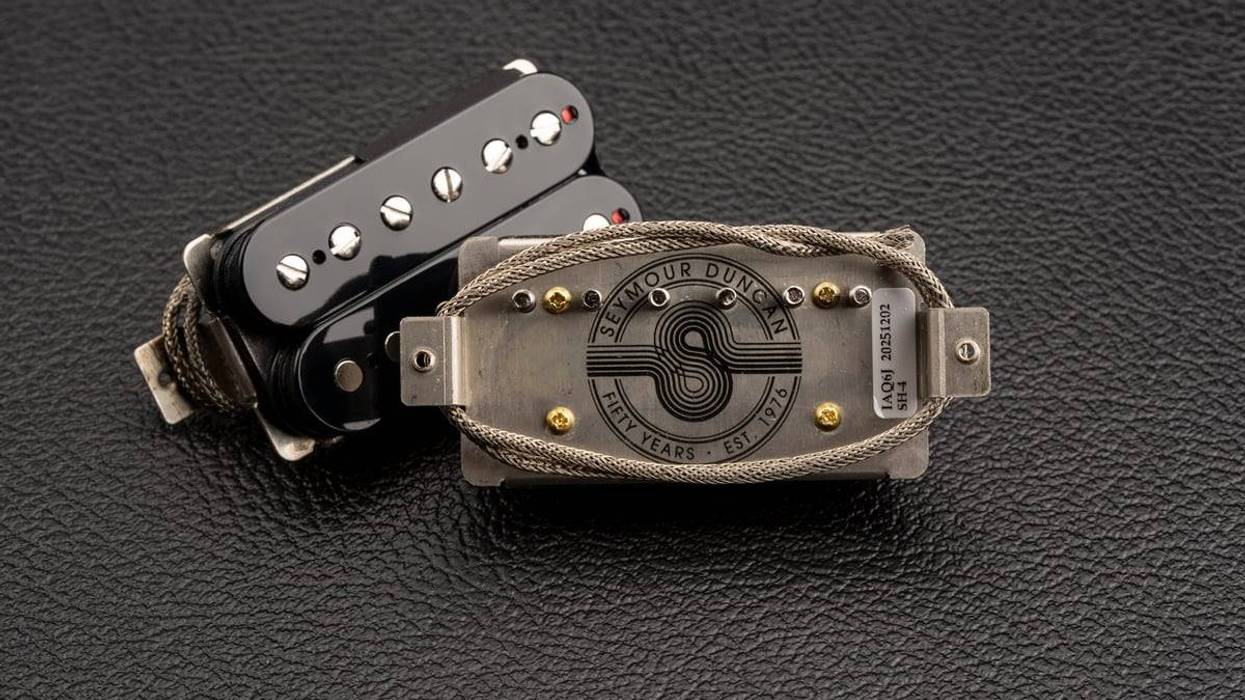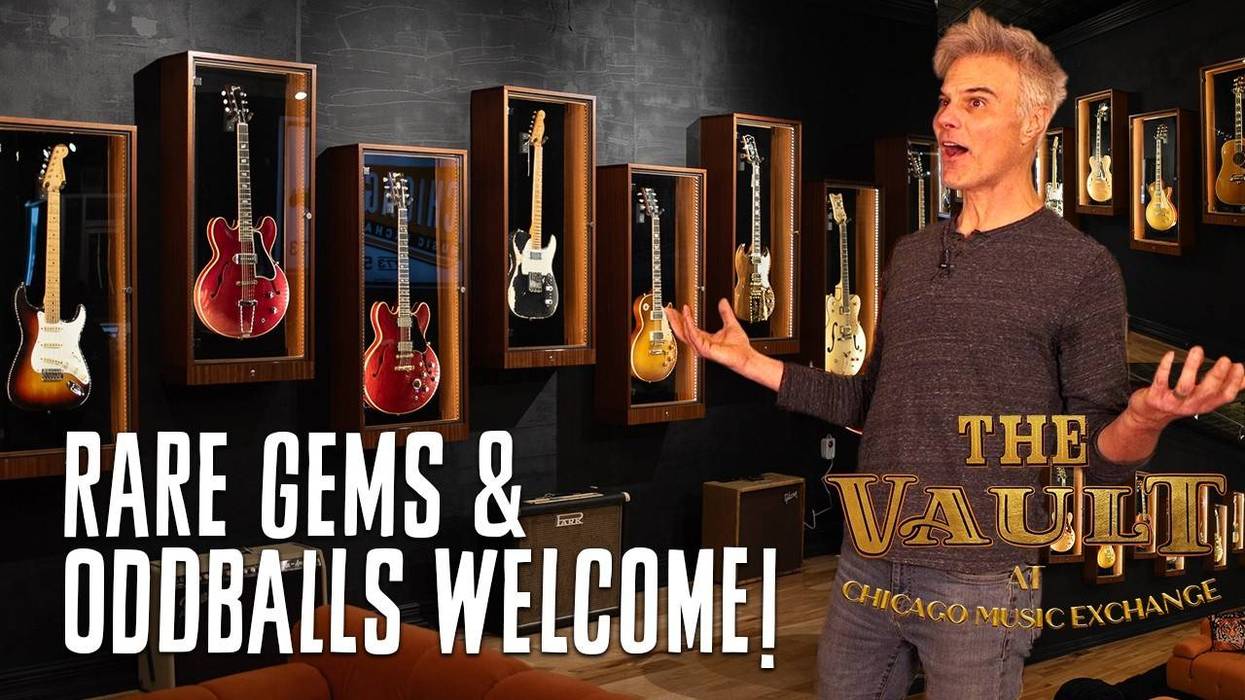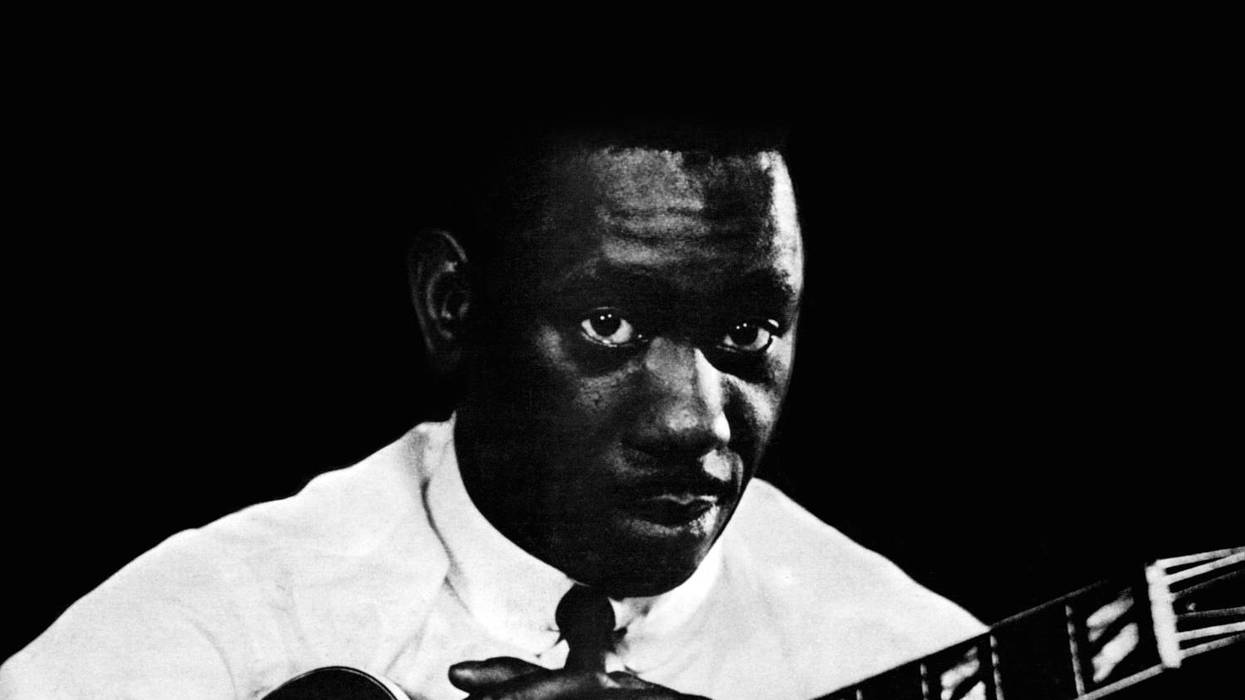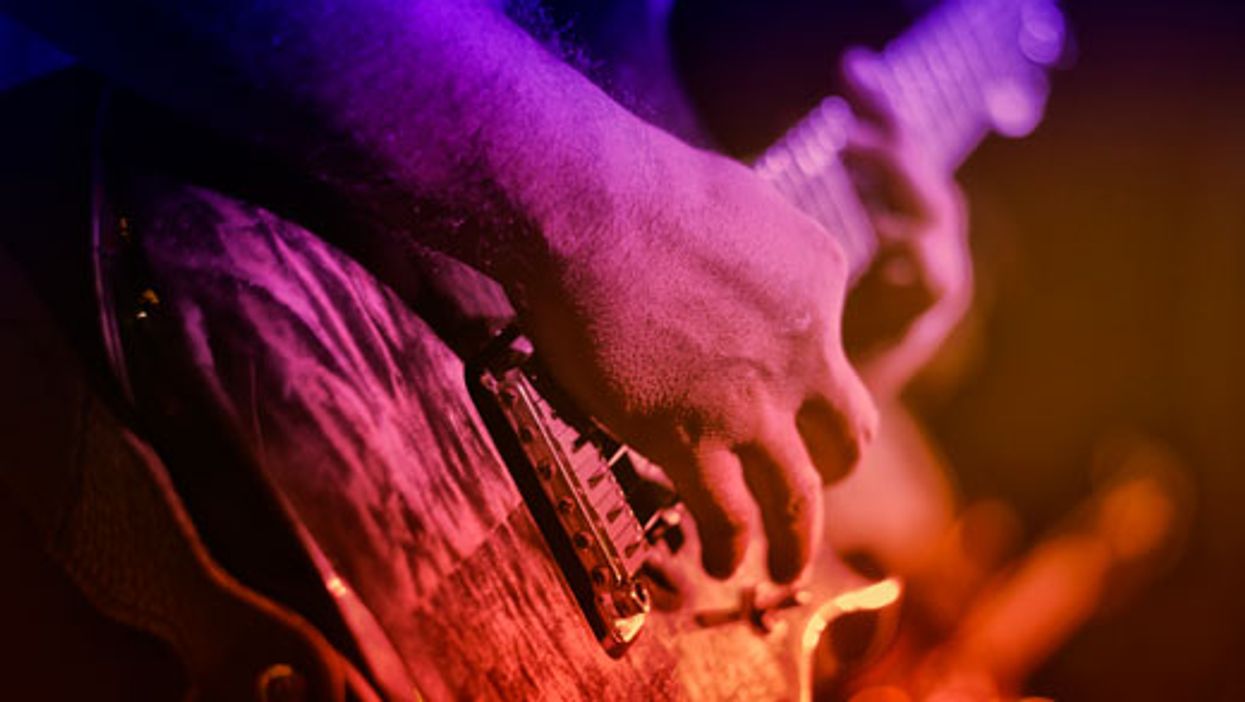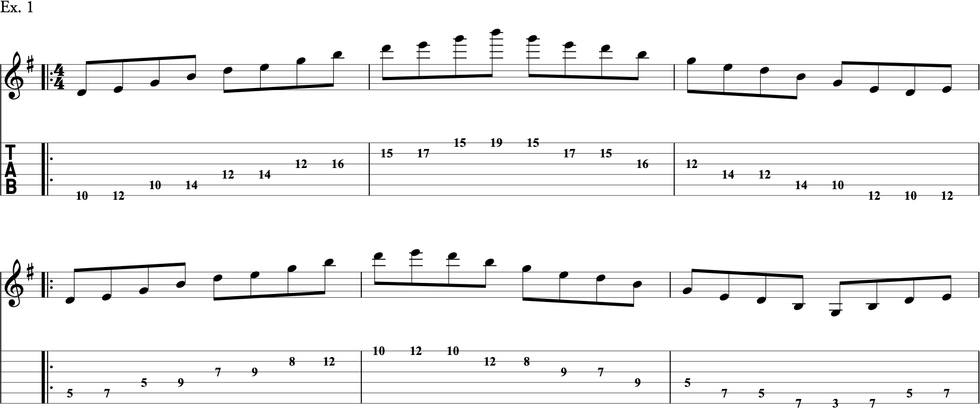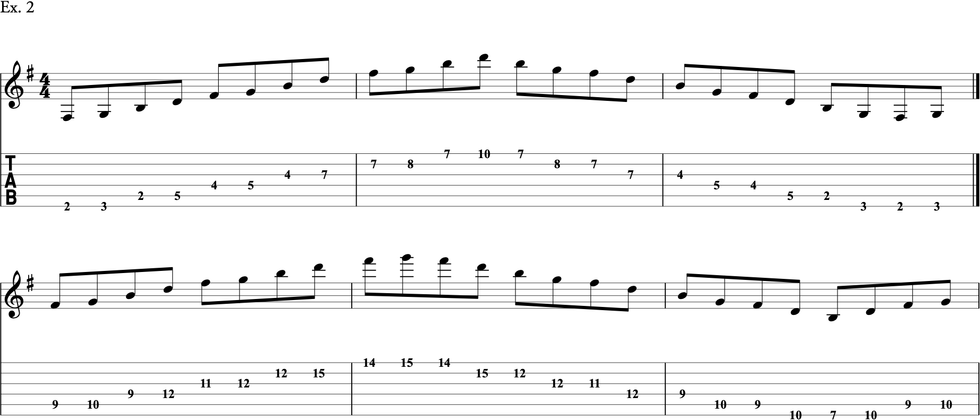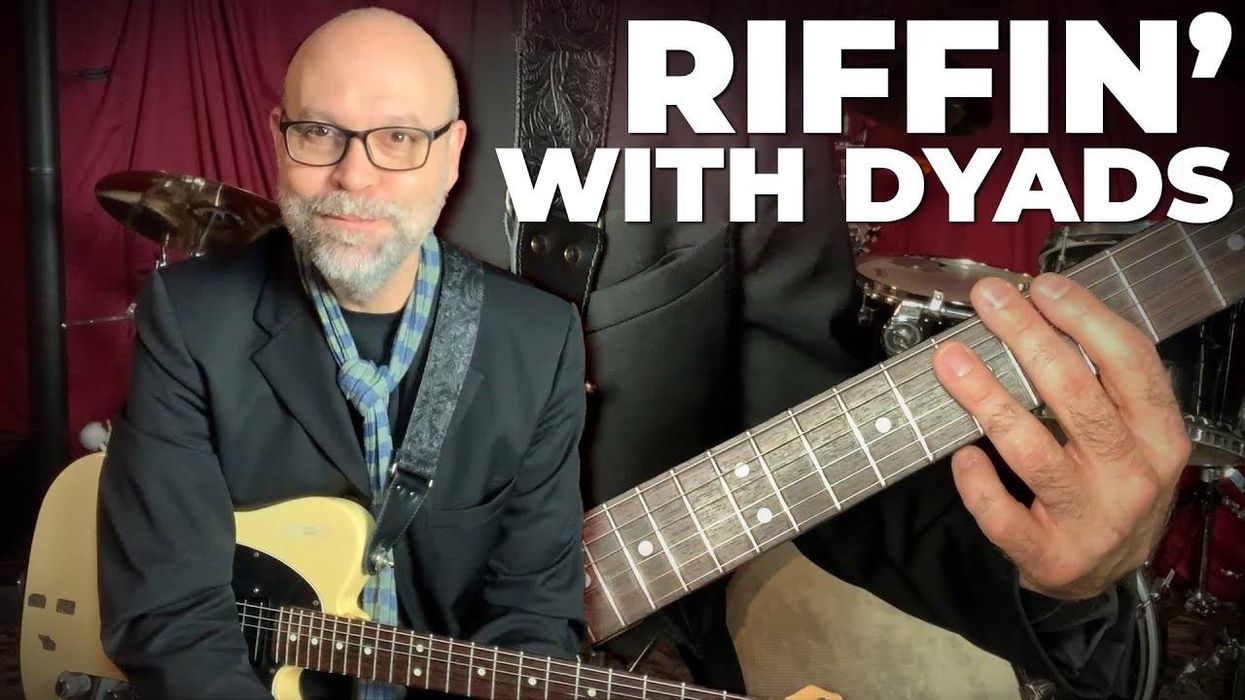The word “audition” conjures visions of walking into a room with two or three stone-faced people behind a table—they’ll listen to you play a couple of short selections and you get rushed out the door for the next live bait. Although these auditions still exist in the entertainment industry, you don’t see them as much in the music biz anymore. In my entire music career, I’ve only done a few of them myself. That doesn’t mean you won’t be auditioning. It means the nature of auditioning has changed.
Let’s talk about the many types of auditions and how you can best navigate them.
To get a wider set of opinions on this subject, I reached out to five friends and colleagues in various areas of the music biz, from session and touring musicians to musical directors to songwriters. I wanted the perspective of other instrumentalists—not just guitarists.
Skill Sets
Different gigs require different skill sets. In reading the responses to my survey, it was interesting to see the commonalities between different musical career paths. The constant refrain: Never be late. This was across all kinds of gigs. If you want a gig, be early. It isn’t just about demonstrating you’re on top of your game. It shows respect. People want to feel that you appreciate the opportunity. Showing up early tells everyone you value their time, the project, and the chance to work with them.
Network
Another universal is the importance of your network. A few people mentioned doing cold call auditions, but the majority of respondents get gigs through people they know. And it is a lot about who you know. Those other guitarists you think are your competitors? They’re actually your allies. Make friends. When someone can’t do a gig, they’ll refer someone they like and trust. Let that be you. I’d argue that building a healthy network of musicians can be one of the most valuable things you do to further your career. The biggest opportunities I have gotten have all been through my network.
Let’s dig deeper into the responses.
I asked Ben Butler—currently playing guitar on tour with Sting and with a long list of credits (see benbutlermusic.com)—for his thoughts on auditioning.
Ben: Musicians will see another musician on a really good gig and want to ask, “How’d you get that gig?” The answer is usually longer and more complicated than you’d think. Many threads may have led to it, including multiple relationships and some luck. In a way, everything you do is an audition for your future career. You’re always working toward becoming the right person for that big gig in the future.
I haven’t had to audition for most of the really good gigs I have gotten—they’ve come by recommendation. In a way, that creates even more pressure. The first gig or rehearsal IS the audition. You can always be fired just as quickly as hired. Getting a gig is one thing. Staying on it for more than a moment is another.
What I can say works for me is serious preparation. The more prepared you are, the more you can relax. I hate being unprepared, even for routine gigs. But when it really counts, I prepare as much as possible. This includes learning the material you have been given really well, but it's even more than that. I believe you need to take matters into your own hands in a gig. Don’t just react to what you’re told, because it’s often incomplete or even wrong.
Do your research, become familiar with the artist, their career, their music. Get all the information you can from the management, the musical director, or band members. You may have to do some detective work. Using YouTube and setlist.fm, find out what songs they’ve been playing on tour and how they perform their material live versus on albums. The keys, arrangements, tempos, and general approach to the songs may vary a lot from the recordings.
I’ve had situations where the artist wants it exactly like the original recording, or where the artist hates the original record or is just tired of it and wants something different. Also, I have shown up to situations where I was pretty certain we were not going to play a particular song and sure enough, it gets called first. Never assume. Learn all the songs you can, and at least be familiar with the rest.
Strive to be low maintenance, so that you fit right in, sound great, know the music, and are friendly and cooperative. I’ve found that in the most professional situations, everyone is very good at their job and also very easy to work with. Otherwise, they wouldn’t keep their gigs. If you are super prepared, relaxed, and friendly, then people will know you are someone they can work with—hopefully for more than just a little while.
Robbie Mangano has played in Sean Lennon’s The GOASST (The Ghost of a Saber Tooth Tiger) and is now on tour with Ricki Lee Jones, and had this to add:
What was your worst audition experience?
Robbie: That time I crammed all the songs in at the last minute. I didn’t really want the gig or love the music, but I thought it would be good for me financially. I did my best for the limited time I had. I didn't get the gig, but it was for the best.
This raises a good point. You’re not going to have a great experience unless you like the music or are really prepared. Winging it never makes you feel good! Just remember there are others who really want the gig and will be prepared. You’re likely to have the most success with a project you really believe in and put the effort into.
You may not initially get the audition—they may have found a better fit. But if you impress them, they’ll refer you to others and may call you in the future. Making a bad impression closes a door.
Robbie: Don't argue with the artist about what’s on the recording. That can all be thrown out the window. The artist might not even like what’s on the recording.
Have fun. Don’t worry about not getting the gig. The audition should be fun enough, and it’s good to meet the people you’re playing with in the audition anyway. If you’ve been playing a long time, you’ll consider this a jam and an opportunity to play and have a good time.
Don’t start talking about how much you prepared. Don’t be a superfan. If you’re auditioning for someone you love, just tell them you love the music, but don’t tell them you worship them.
I’ve had the experience of finding out the artist didn’t like the parts on the record. I always go into a gig/rehearsal or audition knowing the recorded parts but also having spent time experimenting and taking liberties. So, if I’m asked to play something different, I have a path to go down.
Robbie adds that it’s a bad idea to stay up late the night before to learn the songs, and then make excuses about being tired before you completely mess up the song. This isn’t to say that it’s one mistake and you’re out. People can tell the difference between an honest mistake and a total lack of preparation.
Robbie: Just have a good time. If you truly are confident, you don’t need to say anything. You just come in, act like it’s no big deal, and say goodnight. If you’re a genius guitarist and they ask if you can play guitar, just tell them you’ll do your best, pick up the guitar, and play. Serve the song. No one wants a show-off or someone who is aggressively confident. So just be tasty and stay out of the way. Sooner or later they’ll know your talents are bigger than they thought. If you feel you need to tell them about your various skills, no need to brag, just offer your services when appropriate, your problem-solving, life-saving skills when they will help.
Other Way Around
Remember: you’re not just auditioning for them. They’re auditioning for you. You’re there to see if it’s something that will work for you. Are these people cool? Does it seem like there are substance abuse issues or personality disorders? Does it feel like a toxic environment? These are all red flags to watch for.
Beers
Unless you’re auditioning for a band that advertises getting together for drinking and jamming, it’s a bad idea to show up having been drinking or with a six-pack in hand.
A few times in my younger days I saw musicians show up to an audition with a six-pack. It may seem like a friendly gesture to bring beers to share. But when you’re the only one drinking them, it doesn’t look professional.
I rarely see professional musicians drinking at a rehearsal, let alone an audition. By rarely I mean it’s been years! It’s usually not frowned upon to drink on a gig but keep that to a minimum. A drink or two is casual. If you start throwing them back, it doesn’t make you look good. Want to party? Go somewhere else after the gig. Don’t get sloppy drunk on the gig.
Denny Fongheiser
Denny currently plays drums with Heart and has played on many albums that we’ve all listened to.
Denny: I have only done a few auditions, in the very early parts of my career. The worst experience was my first. It was in L.A., for Tina Marie. I was a huge fan! I went to a rehearsal studio to practice and be one with her songs. The audition day was kind of a cattle call. There were a few people ahead of me. Things started very late and the schedule kept being pushed back later in the day. I had a gig that night and had to leave before auditioning. That was very disappointing.
Another audition was for a tour with Starship. There were just a couple of drummers auditioning. We talked a bit, then played through a few songs. I ended up doing the tour. It was a great experience.
It’s rare to audition for a recording. But in my early years I did two record auditions. They were both different and great experiences. They ended up being very pivotal in moving my career in the direction I’d dreamed of, which was making records!
First was with Brian Setzer. In this audition, I was the only one they were looking at. We played together in a rehearsal studio for about a half hour. Brian and producer Don Gehman walked out to talk. Then they came back and said, “Let’s do it!” We started recording the following week.
The second record I auditioned for was Tracy Chapman. It was great because it was in a recording studio—producer David Kershenbaum’s Powertrax. This made so much sense to me. You can play with the same feel and dynamics as you would on the record.
They recorded the auditions and I could hear the auditions before mine through the wall. The others played with more of a current pop-radio essence. They were also further in their careers than I was. But I heard her music differently. I thought they’ll either hate it or like it, but I felt I needed to play what I felt. I used some brushes and stick combined with a more subtle, reggae-ish movement. I left not knowing how they liked it. When I got home, there was a message on my machine asking if I could come back the next day to play with bass players. It worked out.
I would say the important thing is to put yourself in the essence of the artist. Understand who they are. I feel when we dig deep and play with our own instincts, we are better than when we try to imitate others.
Whether it’s an audition, a session, or a tour, be yourself! Be on time. Or even early. Be prepared. Play the song. Connect deeply with the vocals. Be open and kind.
Music is a communal connection. We might start out as drummers or guitar players, but we aspire to be musicians. The music just happens to come out of those instruments we spend so much time getting to know.
Aspire to be someone who gets hired because of how you play your instrument and how you contribute musically. And remember: All gigs are important. Always give 1,000 percent.
To me, playing on any record is about having these three things in line: sound, part, and feel! That combo needs to be right for your intention and groove to work.
This brings up a really important point: Sound is more than just what gear you use. I feel we guitarists get caught up in which Klon copy is the closest to an original gold Centaur. It’s a myth that any effect is the core of your sound. In reality, most of your particular sound comes from your hands.
You can take the same drum kit and have two drummers play it with the same sticks. They will sound completely different, even if they play at the same volume. One may sound fuller and one may sound thinner.
As guitarists, we tend to overlook this. But as Denny says, it’s integral on big sessions or tours. I would say technique and speed are just the outer crust. So make sure you are in touch with the sound of your hands. Tone starts there!
Dave Sherman, keyboardist with Nick Cave, Grand Mal, and Elle King, shared his experiences.
The Worst Audition
Dave: It was the mid ’90s in Nashville, and my buddy went out of his way to get me an audition with a pretty successful cover band that was working four to five nights a week. I heard the music and thought, this is just three-chord rock. I can coast in and just do it intuitively. We started playing and the horrified looks on their faces is something I still think of as a reminder to learn the exact parts and sounds required.
On Preparation
Dave: One thing I’ve discovered over time is that for touring or cover gigs, the band wants to hear the part. Learning every detail and getting the exact feel are crucial to playing with confidence, dynamics, and focus.
Memorize the song titles so you can adjust quickly when they’re called out. It’s also good to know the lyrics, as they help cue the section changes. You don’t need to memorize everything, but you always need to know what comes next. Learn all the important parts and hooks of the songs—not just the ones you are playing. You may be called upon to play the other parts or double them.
Do’s and Don’ts of Auditioning
Dave: Don’t overplay. Don’t overtalk. Be confident, but be nice and offer to help if needed. Being in a group is like being a roommate. If your audition is a meal hang, then don’t eat or drink too much.
Curveballs
Dave: Know the songs well enough so that you can transpose them. This requires knowing the melodies and voice-leading of your parts by heart.
I can concur with this! Many times, I’ve shown up and the song key has been changed, sometimes to a key that isn’t flattering to the guitar. You have to internalize what’s going on. It’s often more than just a position on the neck.
Auditions Today
Dave: It’s all word of mouth for me, but that’s because I’ve been doing it for a long time. Most of my auditions at this point are sharing a meal or a coffee or even a phone call to make sure I’m on the same page with the bandleaders conceptually and that I’m an okay person to hang with for an extended amount of time.
Party Band Central
I also talked to Mel Flannery, who once led a party band called Mixtape specializing in private events (www.melflannery.com).
What are the most important skills for this kind of work?
Mel: Having big ears to catch the little things in the original recording that made it cool to begin with. Being easy to get along with. That is huge. Enjoying playing in general and always striving to make music and not just get through the gig. Having the kind of tune memory so that you can jump from one song to the next and instantly recall what that riff sounds like.
What are the deal-breakers?
Mel: Being unprepared, being rude, or having too much ego. Not just to me but to the other musicians, as well. These gigs are long days and if you're not a good hang, you’re out.
Although Mel mainly hired people through her network, she would open cold call emails.
Mel: A lot of musician cold-call emails are really sloppy, riddled with spelling and grammatical errors, and clearly just going down a list of bands. Ninety percent of them feel spammy.
If anyone reading this sends cold call emails, I really encourage you to personalize each one. Make it clear you've actually looked at the band's website. Personalize yourself. Don't just say your name, your instrument, and drop a bunch of YouTube links. And don't send identical emails every few months. Yuck.
How much material do you expect guitarists to prepare?
Mel: I've done auditions a few different ways, but I think the most I've ever asked for was 15 songs, with charts provided before and during.
Do you expect guitarists to dress for stage or can they go casual when they audition?
Mel: They don’t necessarily have to show up dressed for the stage, but I really appreciate when they ask about the dress code. That shows they’re pros, and that they’re in the right mindset to work and will be good team members.
Authenticity
You may be asked to play many kinds of music in a party band. Different genres may use different chord voicings. If you’re learning songs for a cover or party band, make sure you’re playing the right voicings. It can really change the character of the music.
Some people spend a lifetime learning the intricacies of one musical genre. When a party band wants “authentically replicated” parts, they usually mean the right voicings and similar sounds. You won’t have to give a presentation on the history of soul. But you’ll need it to sound and feel right. You have to show you know a variety of musical genres.
When an original band uses the word “authentic,” you better be able to give a dissertation on the many subtleties that make up the genre. These situations can get really deep and it can quickly become obvious you’re a visitor in a foreign land.
This brings me to another point: Don’t advertise skills or styles of music you don’t do well. I’ve seen people exaggerate their skill set, only to show up and get schooled. It’s better to do fewer things well than many things half-heartedly.
Sing!
Another important tip: Learn to sing harmonies. I can’t tell you how much this comes up. I’ve lost a lot of opportunities over the years because I’m not a solid harmony singer. Many gigs, including top-tier gigs, require this nowadays.
This doesn’t mean you have to be a great lead singer. You need to blend in and have good pitch. A less skilled guitarist may get the gig over you, simply because they can sing backups.
Dress Code
Everyone I spoke with recommended either casual nice-and-neat or stage-ready. The way you dress creates an impression. If it’s a party band, dress casual and clean. This will give them confidence you’ll show up to a wedding dressed for the part. If it’s an audition with an artist or a band, dress the part. I tend not to always go full stage wear, but dressed like I’m going to a cool event.
This can mean many things depending on the genre of music you’re into. Regardless of style, look cool. I would avoid shorts. You’re not going to the gym or a BBQ.
Broadway
Broadway auditions are a real pressure cooker. Your first show—and even first couple of shows—is your audition. You’re expected to come in and nail the parts, just as the first chair guitarist does. You should play the parts perfectly.
If you do well for a few shows, you’ll get “designated,” which means you’ve got the okay to be a regular sub. My friend and fellow touring musician Tony Mason has been subbing on the musical Hadestown. I’ve seen Tony prepare for that show. He doesn’t just partially know the music. He breathes it. This is a must. A sub on a recent Broadway show sight-read on his first performance. He was fired. Even if you’re a great sight-reader, there are nuances you won’t get unless you really do your homework. I’d say that no matter what gig you’re doing, don’t assume you can get away with sight-reading. That’s never a path to success.
Gear
Make sure your gear is in working order before you walk into an audition. Entering a room full of people you don’t know is already awkward. Patch cables that don’t work or realizing you forgot a power cable will make you look bad.
Always test your rig and guitar before you leave the house. Make sure the outputs on your pedals are balanced. You don’t want to kick on an overdrive pedal and blow people’s heads off. Mark down the settings and test your tones through an amp at moderate volume.
On arrival, I plug in, turn everything on once to make sure it’s working, and start. Also, no noodling while setting up. Play as little as possible before you’re asked to play. Let the music tell the story. Don’t go through your greatest hits of riffs.
Sound Like the Record
Just how close to the record you need to sound will vary from project to project. For cover or wedding bands, being in the ballpark is fine. Nobody is going to question whether you’re using a Phase 45 or Phase 90. But, on gigs with artists, things can be much more specific. The difference between a germanium and a silicon fuzz pedal can make a difference. The variation between a chorus or a flanger could become important.
Charts
Ideally, you should learn the music. There are times when cheat sheets or charts are okay, like when it’s a super short-notice audition, gig, or rehearsal. But in general, the consensus of my survey is: Memorize the music. There are always exceptions where charts won’t necessarily be a deal-breaker. But it looks better if you have the music down.
I’ll sometimes do a cold call here in NYC—a one-off with an artist. I often use charts for these not-quite auditions. There’s no expectation that I’m going to memorize a set for a one-off gig. But if I’m stepping into a situation that I know may be an audition, either onstage or rehearsal, I spend a lot of time with the music.
The Hang
Personality matters. You’re not just being judged on your playing. This is especially true if you’re auditioning for a touring band. Musicians want to travel with people they can hang with. There is a lot of down time on the road. You’re essentially living together. You don’t want an annoying roommate. If you have an aggressive, confrontational personality, you’ll limit your opportunities. Everyone is there because they love music. Be fun.





